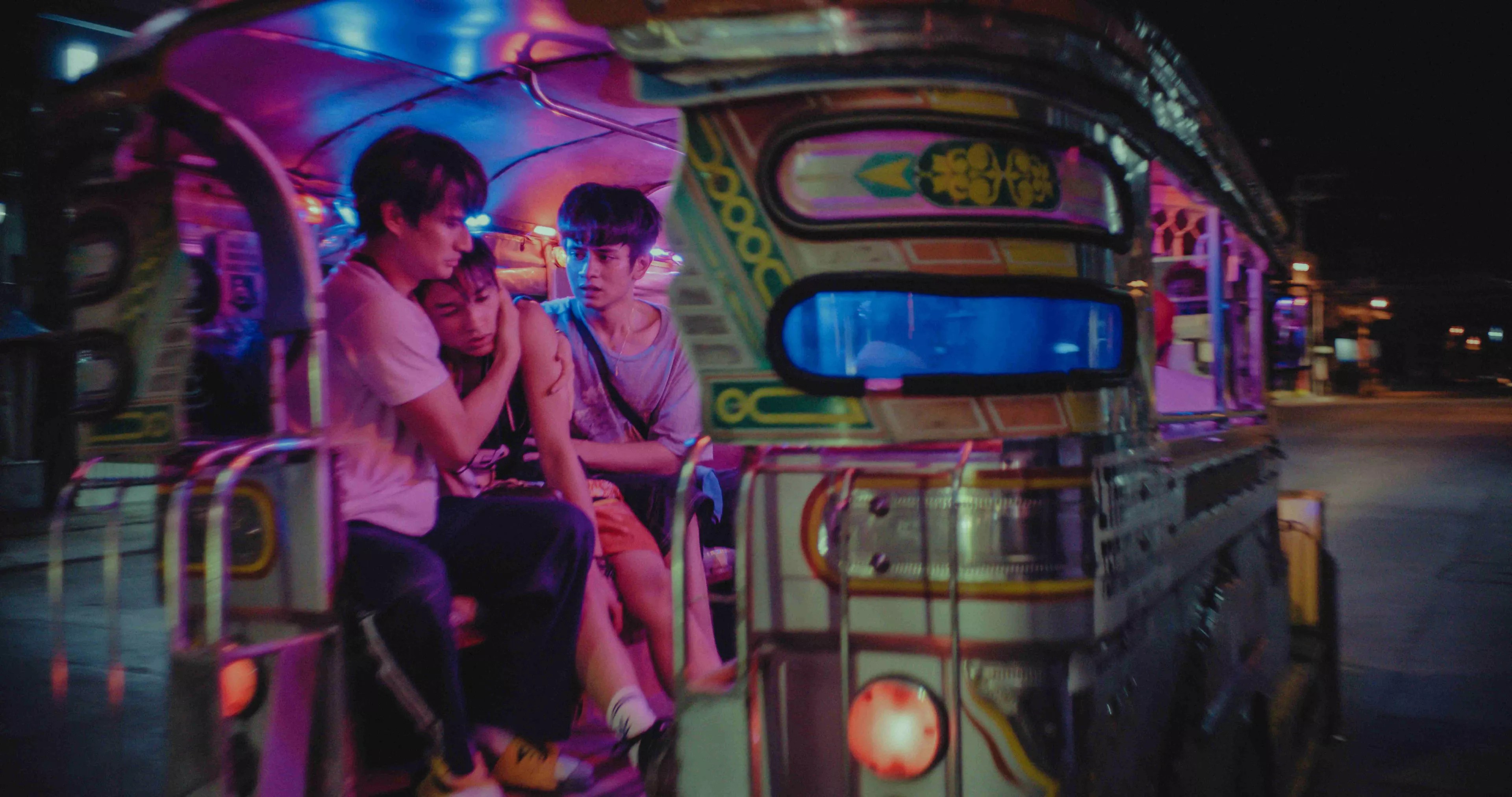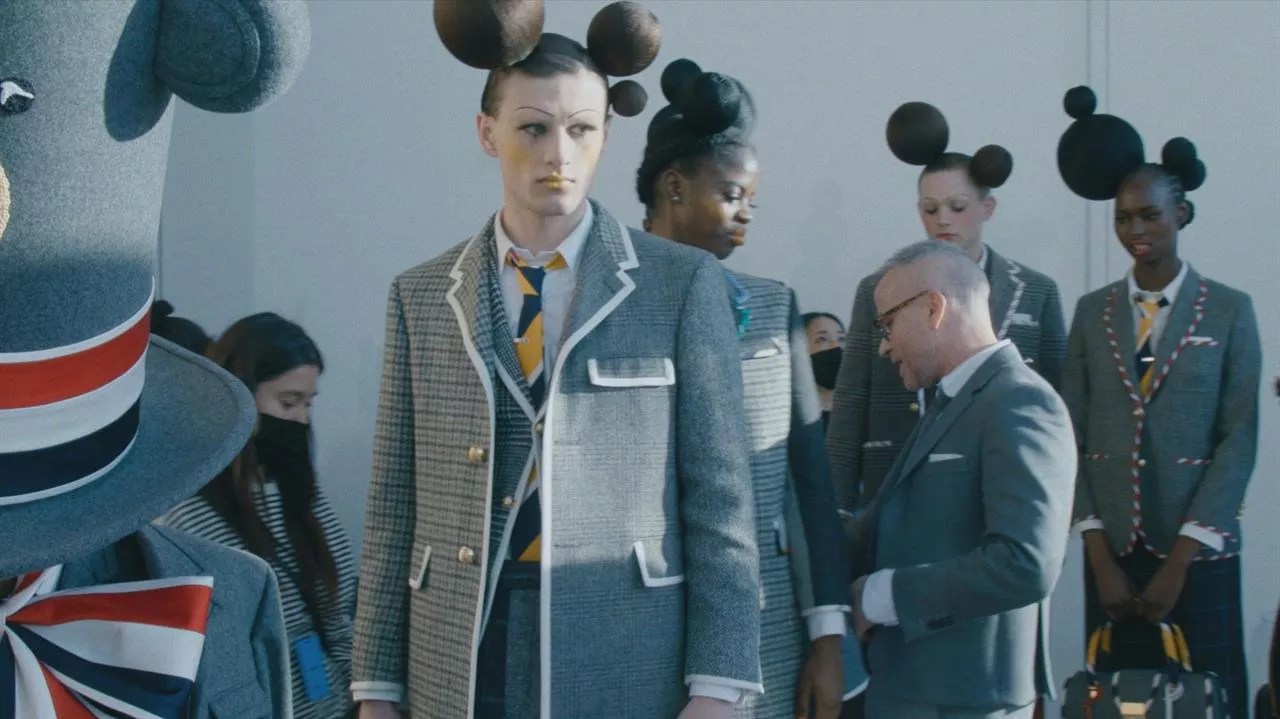
Gala del Sol Films photo

Audio By Carbonatix
It’s always a treat to dive into contemporary queer cinema, especially in the weeks following Miami Beach Pride, when the energy and sense of community are at their peak. For those who want to dive into LGBTQ-centered movies, Outshine Film Festival returns for its spring edition from Thursday, April 17, through Sunday, May 4. Screenings take place in Miami Beach, Fort Lauderdale, and even virtually.
In the current landscape, where politicians deem it appropriate to shame and silence queer people, it feels all the more necessary to see stories about queer joy, passion, and even fear. Scrolling through the offerings might feel daunting, so your friendly neighborhood queer writers are here to highlight some interesting features making their way to South Florida this season. Here are some of the highlights of this month’s Outshine Film Festival.

In an era where so many films aim to blend into the status quo, there’s something refreshing about a work like Rains Over Babel, which unabashedly leans into its queerness and vision.
Gala del Sol Films photo
Rains Over Babel
There’s a dreaminess to Gala del Sol’s feature debut, Rains Over Babel (Llueve sobre Babel), which lures you into a beautifully presented world full of beautiful people from the moment it begins. Just as beautiful is how tragically real it feels to navigate the lives (and sometimes deaths) of about a dozen separate inhabitants of this mystical vision of Cali in Colombia. Though it’s impossible to list every individual thread (and part of the pleasure is witnessing how they unfold), Sol’s film never feels too sprawling for its own good.
Everything about the film is inviting, from its vibrant visuals and music to the punk-ish and uniquely styled characters that could have been ripped straight out of South Florida’s own queer scene. As in Lilly and Lana Wachowski’s Cloud Atlas and Sense8, these threads overlap and function in tandem. That the film never veers into soap opera terrain or preaching to the viewer is nothing short of a miracle.
The Wachowskis are an apt point of reference for this film, not simply because Sol has an aesthetic sensibility that navigates and blends fantastic elements with more grounded ones, but because of the way she balances sincerity with camp. Though the film’s marketing and reviews have frequently cited Dante’s Inferno, the film functions as more of a purgatory for its characters, especially those locked into servitude for the film’s version of Death (a gorgeous betting woman named La Flaca).
One could argue Sol gets somewhat lost weaving the film’s myriad threads with references to Greek and Christian mythology (we see a Black drag queen framed as Christ with a trans woman as his Mary Magdalene), but perhaps that perceived messiness, which I consider purely a dedication to ambitious storytelling, is exactly what I want from queer cinema. In an era where so many films aim to blend into the status quo, there’s something refreshing about a work that unabashedly leans into its queerness and vision. 9:45 p.m. Saturday, April 26, at Gateway Theatre, 1820 E. Sunrise Blvd., Fort Lauderdale; 954-678-4858; outshinefilm.com. Tickets cost $15 via outshinespring2025.eventive.org. -Juan Barquin

Some Nights I Feel Like Walking follows a young runaway who joins a streetwise crew of hustlers until a tragic accident propels them on a bizarre odyssey.
Film Movement photo
Some Nights I Feel Like Walking
Make The Outsiders queerer and transport the action to the present-day Philippines, and you’ll capture the vibe of Petersen Vargas’ Some Nights I Feel Like Walking. The film follows a young runaway, Zion (Miguel Odron), who joins a streetwise crew of hustlers led by Uno (Jomari Angeles) until a tragic accident propels them on a bizarre odyssey. Vargas juxtaposes urban neon-tinged neo-realism with pastoral abstraction while exploring themes relating to family, friendship, and desire. Within its winding plot, the film provides a glimpse into contemporary Filipino society, from the queer experience and class divide to the war on drugs.
While the film would benefit from a tighter edit, the kinetic energy captured during the Manila-set first half and the languid, dreamlike conclusion set in the countryside portray environments where anything could happen. Vargas’ best sequences illustrate erotic connection in cruisy spaces, from prolonged eye contact in a cinema projection booth to the expanse of the woods. Photographed beautifully and anchored by sincere and tender performances, Some Nights illustrates the power and necessity of a chosen family. 4:45 p.m. Friday, April 25, at Gateway Theatre, 1820 E. Sunrise Blvd., Fort Lauderdale; 954-678-4858; outshinefilm.com. Tickets cost $10 via outshinespring2025.eventive.org. -Trae DeLellis

The Big Johnson outlines the work and impact of Dean Johnson, a performer who helped define and create a certain era of New York queerness.
Gays From Away Films photo
The Big Johnson
Practically as soon as Lola Rock’N’Rolla’s The Big Johnson opens, we see a bald gay man in a feather boa and a frilly black top telling everyone that a party called “Rock ‘n’ Roll Fag Bar” is about to get started. The glimpse into the life of a (somewhat niche) queer nightlife legend instantly catches the eye.
If you’ve never heard of Dean Johnson, Rock’N’Rolla does a stellar job of outlining the work and impact of a performer who helped define and create a certain era of New York queerness. Though The Big Johnson often falls into the same traps as many of today’s celebrity-focused documentaries – an abundance of talking heads, a mish-mash of styles that often delight but don’t always gel – Johnson’s story and personality shine throughout. His diaries are playfully brought to life through animated segments, and every bit of concert footage highlighting his bands – Dean and the Weenies and the Velvet Mafia – is riveting.
The film does not shy away from navigating the perils that come with being a vocal and political queer person, from homelessness to drug abuse. It never lingers in the darkness for too long, though, instead emphasizing the beauty of creating community and boldly expressing one’s identity. Johnson wasn’t just a 6’6 drag performer but also a talented musician, safe sex and sex party advocate, addict, activist, sex worker, and so much more. The Big Johnson serves as a testament to their legacy and talent. 2:15 p.m. Saturday, April 19, at Regal South Beach, 1120 Lincoln Rd. Mall, Miami Beach; 844-462-7342; outshinefilm.com. Tickets cost $10 via outshinespring2025.eventive.org. -Juan Barquin

Thom Browne: The Man Who Tailors Dreams, from director Reiner Holzemer, tries to get to the man behind the gray flannel suit.
Dogwoof photo
Thom Browne: The Man Who Tailors Dreams
Fashion documentaries, especially since 2009’s The September Issue, have become somewhat ubiquitous. At times it feels like they are pattern-made for any major brand’s public relations kit. Thom Browne: The Man Who Tailors Dreams, from director Reiner Holzemer, tries to get to the man behind the gray flannel suit. A veteran of the genre after Dries (2017) and Martin Margiela: In His Own Words (2019), Holzemer often seems at odds with his elusive, cryptic, and sometimes completely absent subjects.
The film’s title is a nod to David Bowie’s role in The Man Who Fell To Earth, which is referenced a couple of times in the documentary. But a more fitting title might be The Man Who Directs Dreams, as Browne is not a trained tailor himself. This is the compelling tension of the film. Speaking of his iconic designs, Browne muses, “The first time I surrounded that gray suit with a story, I never looked back,” and describes himself as someone who favors instinct over thought. It feels as if Browne is intentionally blocking any deep insight into his person and instead pivoting to his brand.
One unbelievably tense moment involving a missing jacket on the runway feels like an opportunity to go deeper, but Holzemer allows the moment to evaporate. Still, the film is an easy and enjoyable watch that hits the 3 Cs of the genre: creation, commerce, and celebrity. 2:30 p.m. Sunday, April 20, at Regal South Beach, 1120 Lincoln Rd. Mall, Miami Beach; 844-462-7342; outshinefilm.com. Tickets cost $10 via outshinespring2025.eventive.org. -Trae DeLellis